TABLE OF CONTENTS
The PC building experience is wonderful.
Scoping out parts, checking compatibility, reading reviews, the anticipation of parts arriving, actually putting it all together, the dread you get when it doesn’t turn on, the relief of realizing you just forgot to turn on the PSU.
It’s all part of the wonderful experience of creating your very own PC with your very own hands.
It might sound nerdy, but if you’re here reading this, I’m going to take a wild guess and say that you too might be a little nerdy.
The Cost of Building a PC vs Buying a PC
But as wonderful as building a PC might be, sometimes money just has to come first.
And if building a PC is a lot more expensive than just buying one, it becomes a lot harder to recommend building your own.
So in this article, I’ll go through all the pros and cons of buying vs building and figure out which one will net you a cheaper PC.
Building a PC – Is it Cheaper?
Advantages
You can pick out exactly what parts you want in your PC.
That might seem like a chore if you’re not into that aspect of building a PC but think of it like this.
If you want a PC that is great at, let’s say, GPU rendering and will only ever be your personal render node, you don’t need an extremely high-end CPU, cutting edge motherboard, ultra-fast RAM, storage, or any other thing like that.
With that in mind, if you bought a high-end PC capable of being a good GPU rendering farm, chances are that it’ll also have pretty good specs when it comes to the other parts, adding on to the cost without actually being of any benefit to you.
But with a custom-built PC, you could handpick decent parts that don’t break the bank while putting a majority of your budget where it matters, the GPU(s).
Main Benefits:
- Better use of budget due to getting exactly what you want and no fluff.
- Potentially cheaper because you might not need to spend as much on the parts that you don’t need.
You know exactly what you put in and can more easily troubleshoot if something happens.
This is another thing where you might just be like “If there’s a problem with the machine, I can send it back to the manufacturer, I can’t do that with a custom-built PC.”
Which is true in a sense, but is also more nuanced than that.
Imagine this. You buy a PC from a system integrator and it arrives a couple of weeks later.
You go to turn it on and it doesn’t do anything.
You call their support up to figure out what might be wrong, they can’t figure it out over the phone.
You pack the PC all up again and send it back to them, and a couple of weeks later, you finally get a working machine.
And what was the problem in the end? A badly seated RAM stick.
Something that could be fixed in under 2 minutes just cost you weeks of delays.
They say knowledge is power, and if you build your own PC, you will have the knowledge to fix these sorts of issues that might pop up quickly and efficiently without drastically slowing down your process and potentially costing you money because of lost time.
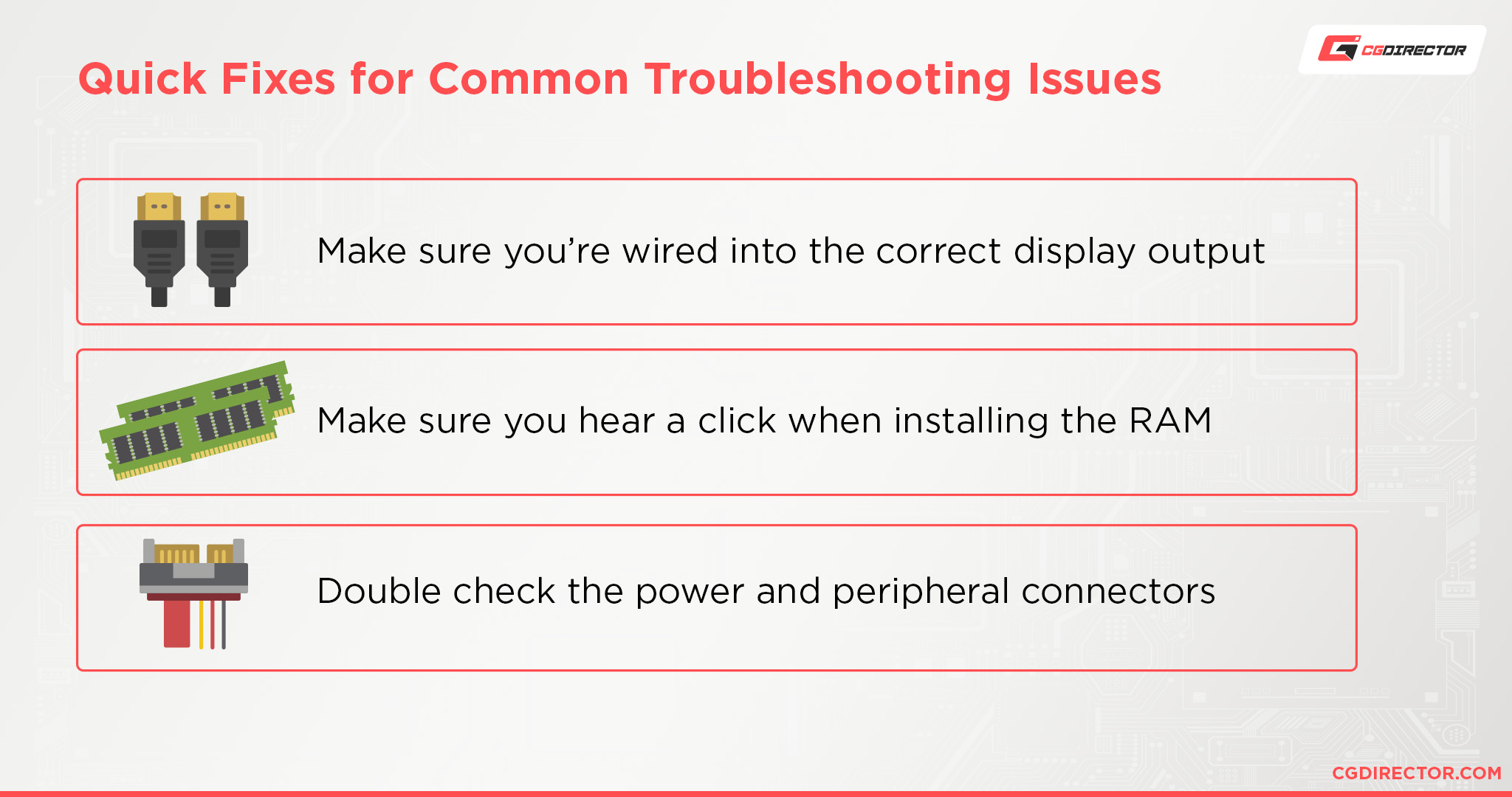
And if it’s a more serious issue with one of the components, instead of sending the whole computer back, you can just send the component back instead.
If it’s a major component, it’ll be the same as sending the whole PC back to the manufacturer.
But it’s a minor enough component, you will be able to keep using the computer and won’t have any slowdowns.
Main Benefits:
- Saves you time.
- Can potentially save you money if you rely on your PC for work.
You will have potentially lower assembly expenses.
Whenever you buy a PC, the cost of labor that went to building it is also tacked on to the end price.
This is especially true with system integrators like Maingear, Origin, or Xidax.
This can be anywhere from 50 to over 250+ dollars on top of the cost of the parts.
If you build your own PC that money can go towards another stick of RAM or even jump up a whole performance bracket on a CPU or GPU.
Main Benefits:
- Can save you quite a bit of money that you can put towards getting better parts or just have it be pure savings.
You could potentially get parts for way cheaper if you buy second-hand and compare stores.
One of the great things about building a PC is the healthy second-hand market around it.
If you live in a place that’s at least somewhat techie, your local second-hand markets will probably have tons of PC hardware that you can get for cheap.
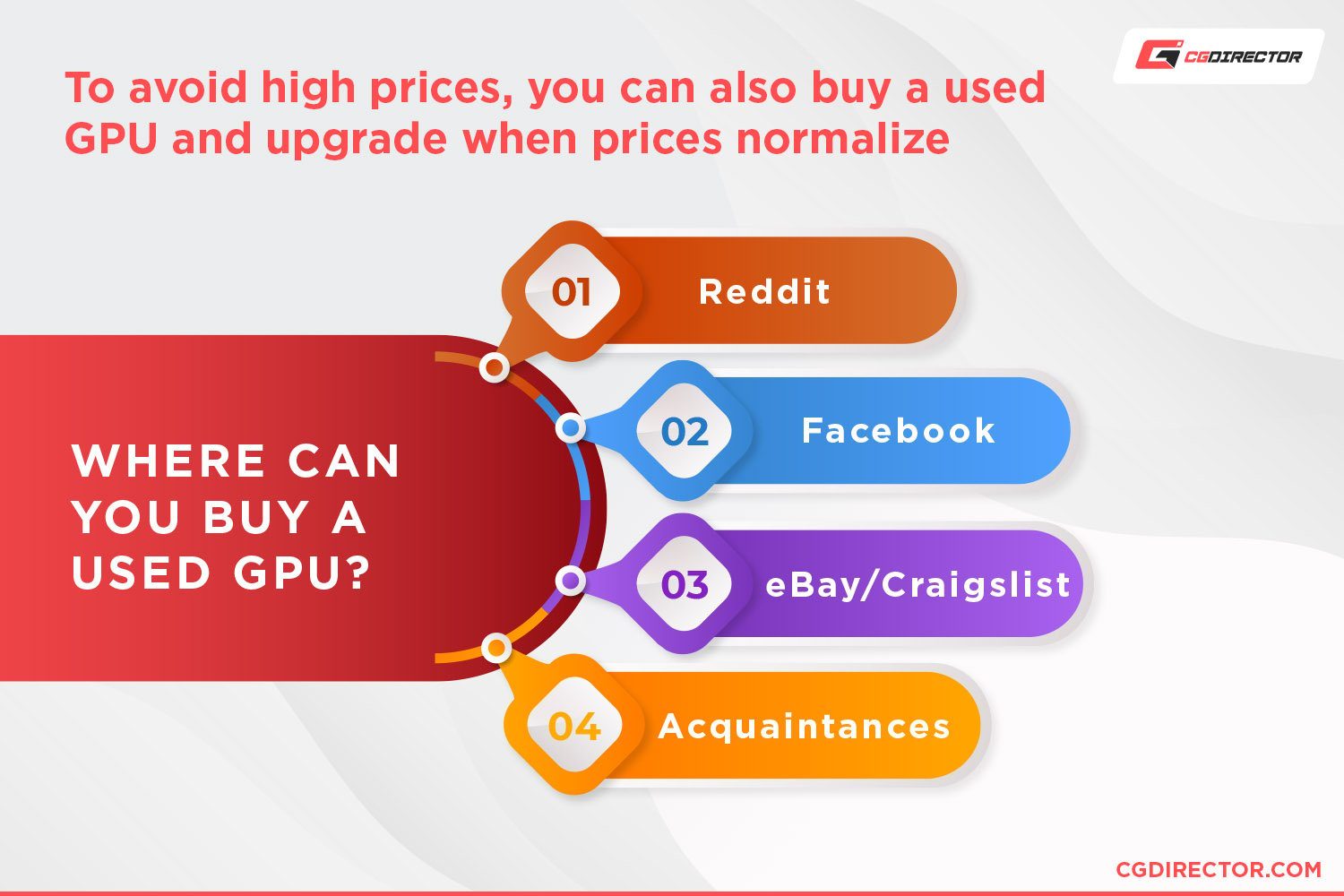
They might not be the latest and greatest, but depending on what you want, you might not even need the latest and greatest.
Main Benefits:
- Depending on what the PC second-hand market in your location is like, you could get some major savings on certain parts.
- Reduce, Reuse, Recycle. Less e-waste.
Disadvantages
It’s less convenient.
Compared to a PC that you can just order with one click or buy off the shelf of your local computer store, building your own PC is definitely a lot more inconvenient.
Picking out the parts is the easiest part.
Next, you’ll have to figure out where you’ll buy them from.
Are you buying second-hand or new?
After that, you have to actually order them and then wait for them to arrive—which could be a couple of days or up to a week or two even.
And then there’s the act of actually researching how to build it and then building it.
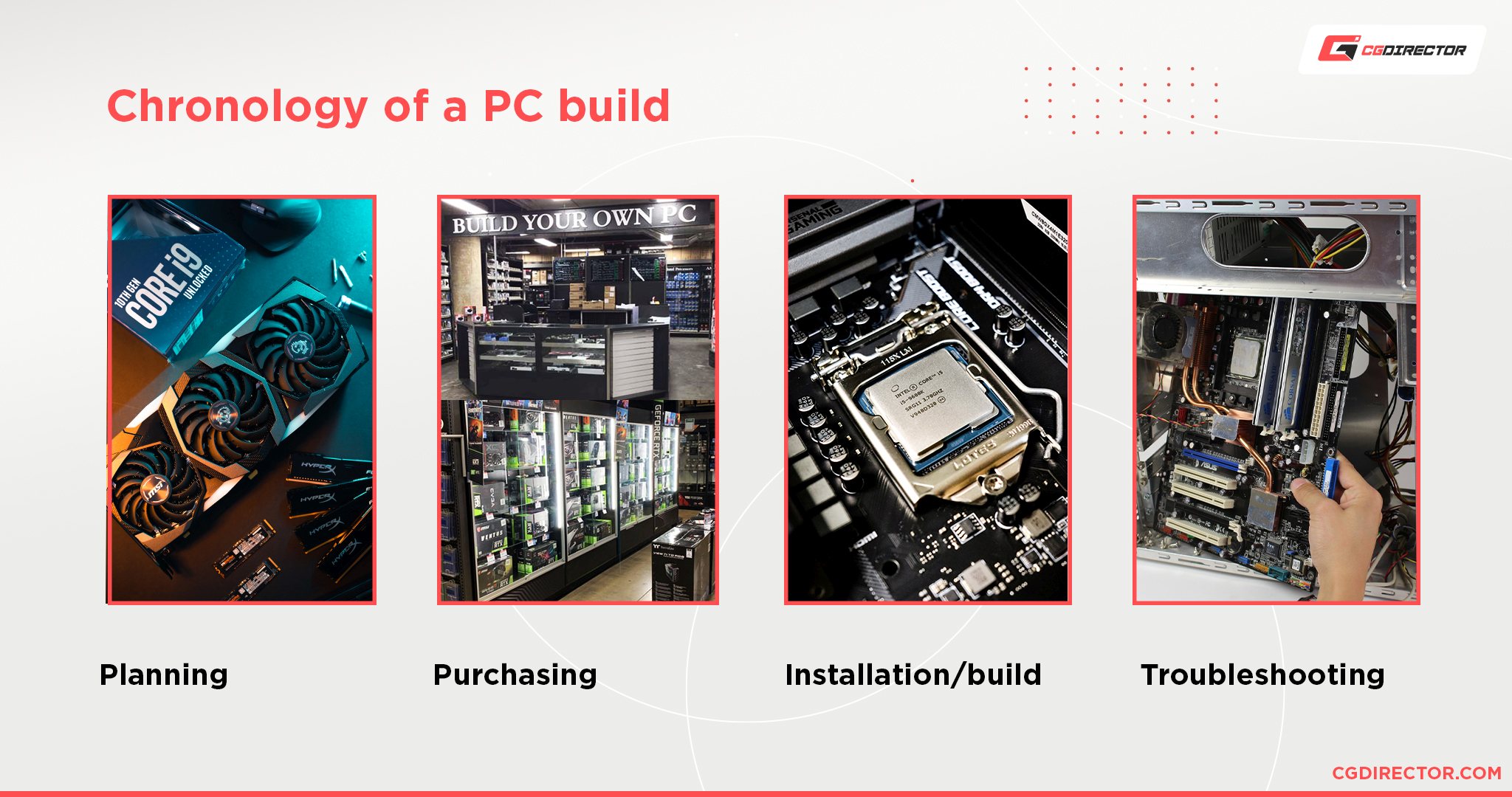
And if you need a PC right now while all of this is going on, you’re outta luck.
If you rely on your PC for work, you can potentially lose money because of this as well.
Main Drawbacks:
- Building a PC takes time, from the selection process to the shipping process to the building process. This can cost you money if you absolutely need a PC for your work now.
You can potentially mess something up.
Now, the chance of this actually happening is low, but not zero.
Modern PC components are very foolproof so the chance of you messing something up irreparably is quite low.
And it’s even lower if you spent even the slightest amount of time researching what goes into building a PC.
But if you just go into it blind with no direction whatsoever and just slap stuff together, you could potentially break a part and have to RMA it—or worse, buy it again.
Main Drawbacks:
- A very slight chance of you messing something up and having to buy the part again.
You have to learn.
If you’re completely new to PC building, you will have to carve out some time to research how to build a PC and figure out how to put together a good parts list.
This usually doesn’t require all that much time, mostly just 2 – 5 hours of your time.
But if you’re extremely busy, you might not be able to afford 2 – 5 hours of free time.
Main Drawbacks:
- It can take a couple of hours to a couple of days to fully grasp how to build a PC. This might cut into work time if you’re extremely busy and cost you money.
It can be more expensive (2020 – 2022)
Due to global chip shortages, computer hardware, along with what seems like everything else, can seen some major price hikes.
This has made it so that PC parts that used to cost $300 now cost 2 – 3 times that.
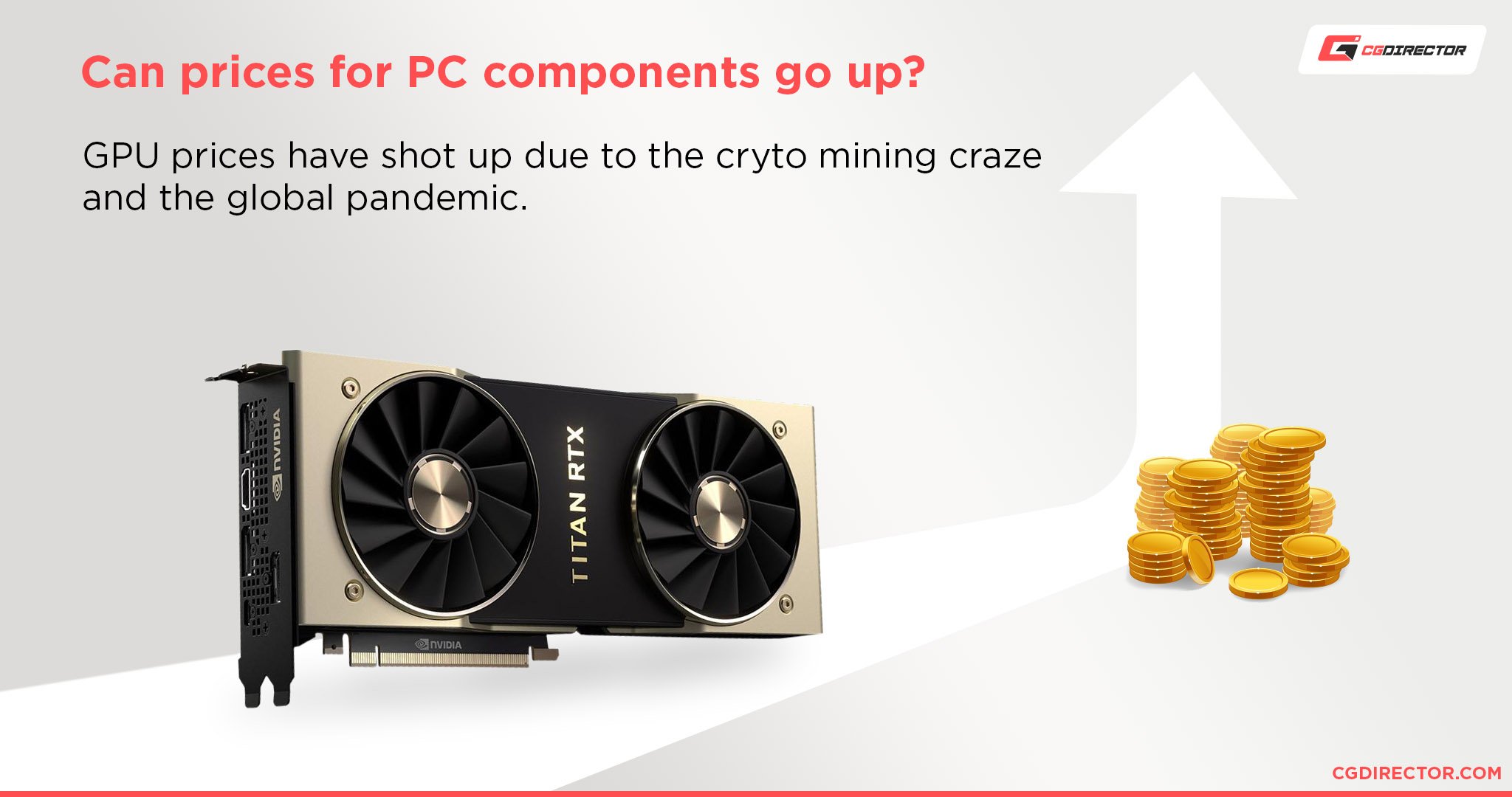
This can make it extremely hard to build your own PC for the same price that you could just a couple of years back.
PC Manufacturers, however, haven’t been affected by these price hikes and hardware shortages as much as consumers.
Because they can buy hardware in bulk at reduced prices and cut costs by using lower quality parts, they can offer PCs at prices that would be hard to match on your own.
They’re still higher than usual and marked up as always, but they can still be cheaper sometimes than buying your own PC.
Main Drawbacks:
- Because of global chip shortages, manufacturers can get PC parts cheaper than consumers at times.
This can make it so that you can get a PC from a manufacturer cheaper than it would’ve been to build the PC yourself.
This is a temporary situation though – In a normal market situation buying your own parts is cheaper.
Buying a PC – Is it Cheaper?
Advantages
You will get a warranty and support.
One of the biggest points in favor of buying a PC is the ability to just send off the PC if there’s any problem with it.
You don’t have to know or do anything and the manufacturer will take care of everything.
As I outlined above, it can be a bit of a double-edged sword, but it’s hard to disregard the ease of just having someone else take care of your problems for free.
Main Benefits:
- You don’t have to bother with any troubleshooting. The manufacturer will take care of everything for you.
It will be more convenient.
Building your own PC can be quite inconvenient.
There’s quite a bit that goes into it.
It’s easy enough to do if you have the time, but it can’t be denied that building your own PC will never match the convenience of just buying a prebuilt PC that’s ready to go instantly.
Even more so if your PC is critical to your work.
If you have to wait around a while to get a PC, you might not be able to do your work, which will definitely cost you money.
Main Benefits:
- You don’t have to wait around if you just buy a PC.
- If your work is reliant on your PC, it might be more economical for you to go with the faster, more convenient option.
It can be a lot cheaper if you want a low-end PC.
One of the places that pre-builts shine is when it comes to low-end PCs.
There are tons of lower-end, sub $300 PCs out there that you can just buy off the shelf and use instantly.
Now, would I ever recommend you do this? No, absolutely not.
These are the lowest quality computers you can imagine made with bargain bins and proprietary parts.
But if you really, really need a PC now, and you don’t have the money to spend on something better, they can come in handy.
Main Benefits:
- If you absolutely need a PC for work or something similar, a cheap prebuilt PC can come in handy.
You can potentially get it for cheaper due to the current global situation (2020 – 2022)
One of the biggest reasons that prebuilt PCs have been given the limelight is because of the global hardware shortages, crypto booms, and “scalpocalypses”.
The price of hardware, especially GPUs has gone up 2 – 3 times what it should be.
All of this has made it pretty much impossible for your average Joe to get hardware at the price they were originally supposed to be at.
The keyword being average Joe.
Again, large manufacturers haven’t been affected as much by this as the PC component sector.
This is because they order parts in bulk and get discounts for them.
Allowing them to get it for cheaper than you ever could.
This also gives them the unique opportunity to sell you PCs at a lower cost than they could before.
Even with the labor costs, markup, and everything else, some pre-builts come out to be cheaper than getting those parts individually and building the PC yourself—which was the exact opposite just a couple of years back.
Now, not all pre-builts are going to be like this. Some of them will still cost more than if you had just built the thing yourself.
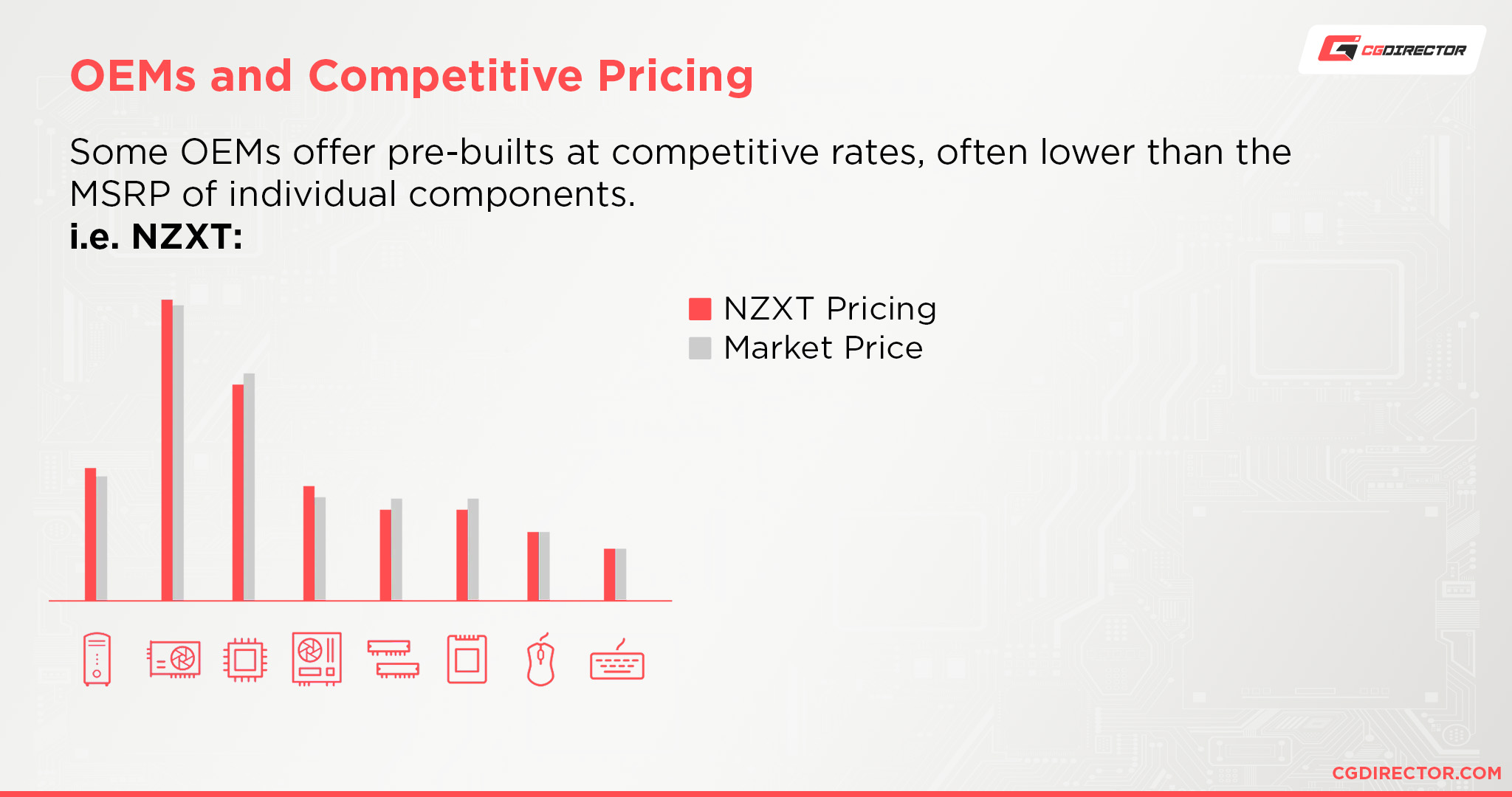
But, if money’s tight, during shortages is a great time to peruse prebuilt PC sites to see if you can score a PC for cheaper than you can build it.
Main Benefits:
- Because of global shortages, you can potentially get a prebuilt PC for cheaper than if you buy the parts individually.
Disadvantages
You might get bad parts.
One of the biggest reasons that people campaign against getting pre-builts (from companies like Dell, HP, etc) is because of the way they cut costs.
By using lower quality parts for the non-critical components and ordering these in bulk, these sorts of monolithic companies can cut costs massively.
But because of that, you might get a machine that has gimped cooling potential or a dangerously shoddy power supply, or lower quality storage.
However, if you’re buying your PC from a company that specializes in building PCs such as Maingear, Origin, or Pugetsystems, you’re less likely to run into these sorts of issues.
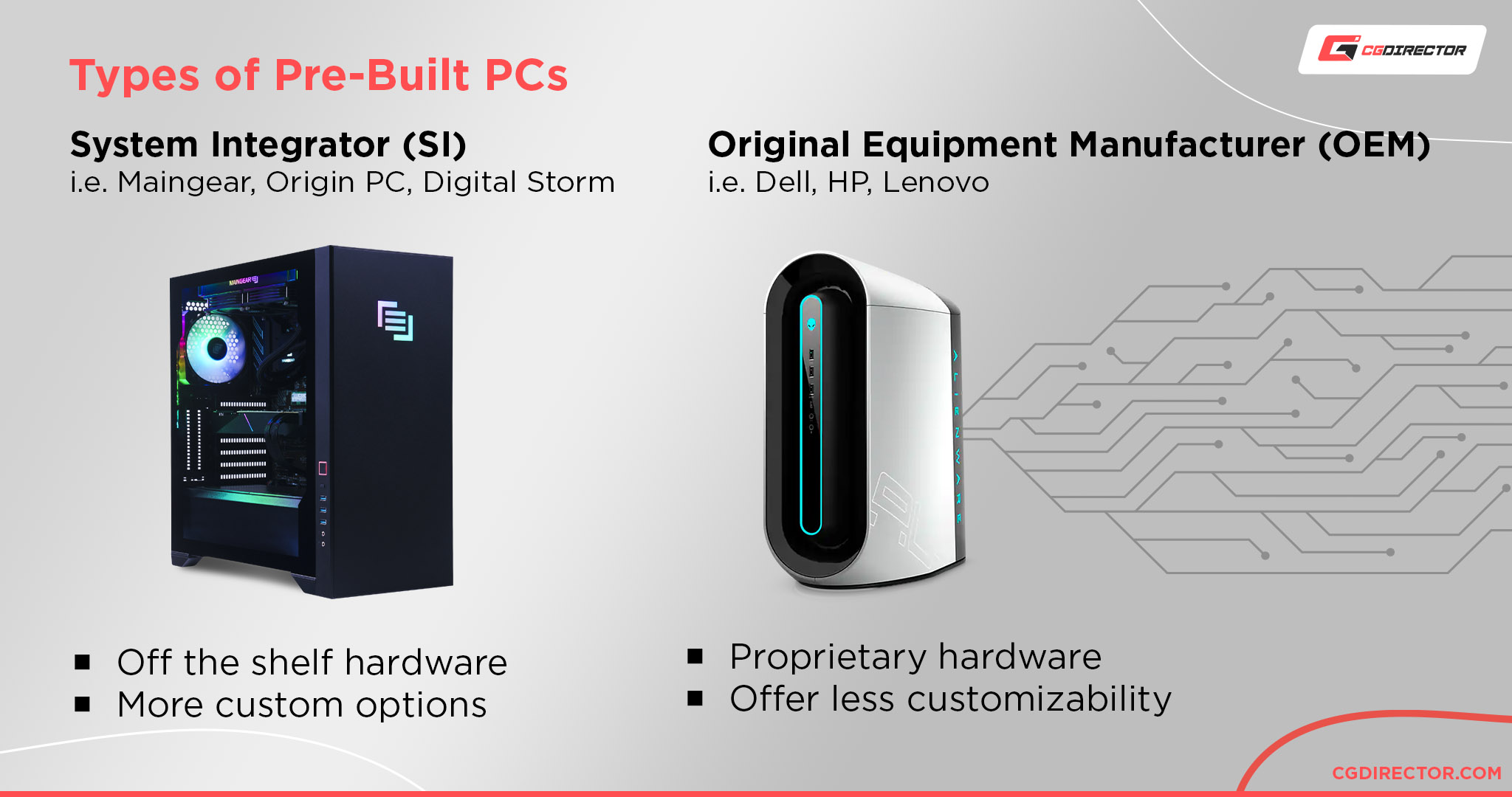
But the chance is sadly never zero—unless you pick out all the parts yourself, but at that point, creating your own PC isn’t that much more work.
Main Drawbacks:
- You might get bad parts that don’t perform as well because of how some manufacturers gimp the cooling of parts by using substandard cooling solutions.
- You’ll have a harder time changing anything by yourself if you want to because of proprietary parts.
- If the manufacturer cheaps out on something like the PSU of a PC, it could become a very real fire hazard as well.

You will have to pay more for labor and the manufacturer’s markup.
No manufacturer sells anything at the price they buy them at.
They’ll factor in labor costs and add a nice markup on top of that to make a profit off of what they sell.
This can add quite a pretty penny on top of everything and this can be anywhere from 50 to 250+ dollars.
Main Drawbacks:
- Compared to a similarly specced machine that you build a PC yourself, you might have to pay more for assembly and manufacturer’s markup if you buy a PC instead.
You will have to wait for weeks for repairs if there’s even a minor problem with the computer.
Sometimes PCs can act erratically. That’s just how computers are.
And unless you know your way around a computer enough to troubleshoot and fix the problem yourself, you will have to send your PC back to the manufacturer to get it fixed.
This might sound like a pretty good thing on the surface.
But the fact is that a large majority of issues faced by PCs aren’t all that hard to fix by yourself, you just need a little know-how.
And if your PC is critical to your work, you having to send the PC out to get repaired—a process that can take a couple of weeks—will mean that you won’t be able to work for that entire time—which will definitely lose you money.
Main Drawbacks:
- If there’s a problem with the PC and you don’t know how to fix it, you will have to send it back to get fixed and this can take a long time.
- However, this doesn’t apply to you if you know your way around a PC.
Build or Buy a PC – Our Recommendation
In general, if you have the time and the ability to learn how to build a PC, and you have specific needs that won’t easily be met by simply buying a PC, you should go with building a PC.
However, if you don’t have the time or energy to fiddle with a PC or you just want something for general work, go with buying a PC.
It’s a bit more nuanced than that, and your opinion on it all matters as well, but that’s our general recommendation.
But sometimes, people like to build PCs themselves even if they only need something simple.
And even if they need something powerful and specific, they’d rather just order it instead.
So, if you’re completely new to this, and if you have the time, what I would suggest is to research and look into what it takes to build a PC and what you get through just buying one and then make your decision.
Conclusion
Hopefully, that explained everything you need to know about the cost of building a PC vs buying one.
The gist of it all is that, if you want a basic computer of general needs and you don’t want to spend a lot of money:
Buy a PC.
If you want a more focused PC that you will use for resource-intensive tasks like gaming, 3D work, simulations, etc.
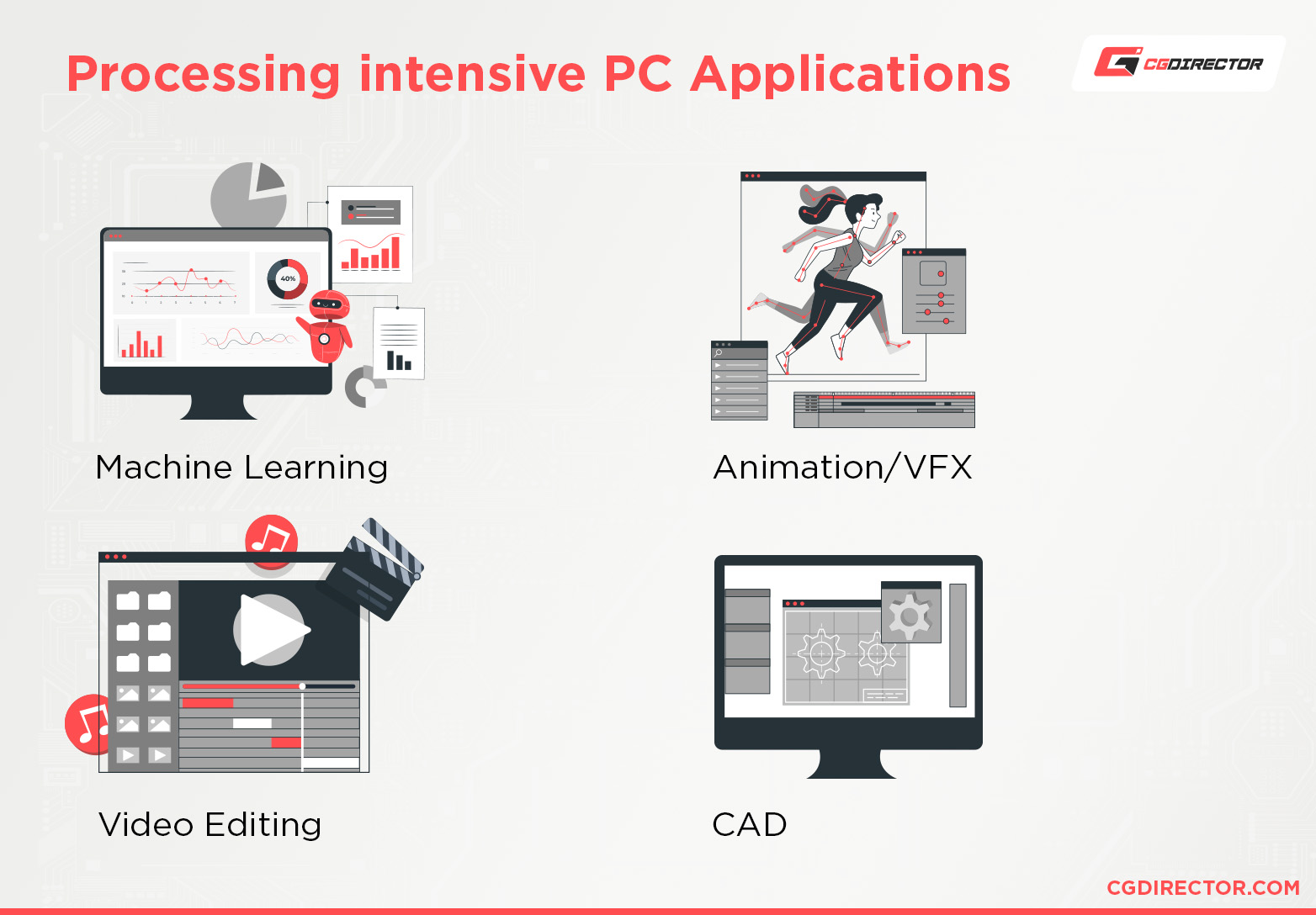
Build a PC.
And if you have a more niche use and you’re still not sure what you want to do, head on over to our forums and ask whatever you want and we’ll be happy to help.
FAQ
Is It Cheaper to Build Your Own PC in 2021?
It depends on where you source your parts and whether you can get them for MSRP.
But, in general, it is harder to build your own PC in 2021 and have it be cheaper than a prebuilt one.
This is because manufacturers can get these parts in bulk at far lower costs than you can.
Not to mention all the scalpers and hardware shortages leading to higher and higher costs for consumers.
To put it in perspective, a GPU that might cost $300 3 years ago would now cost 3 – 4 times that much.
But that’s just the way things are right now.
By current estimates, it’ll get better around the end of 2022, but from what I’ve seen, I think it’ll go on till 2023 at the very least.
So, if you can get the parts for MSRP or second-hand (without paying scalper prices), then yes, building your PC will be cheaper.
But that is much harder these days, so if you just want a PC now, getting one from a system integrator is your best bet.
Laptops are also a good stop-gap measure.
Is Building a PC Hard?
Not at all. There’re a ton of tutorials out there going over exactly what you need to do to build a PC in great detail.
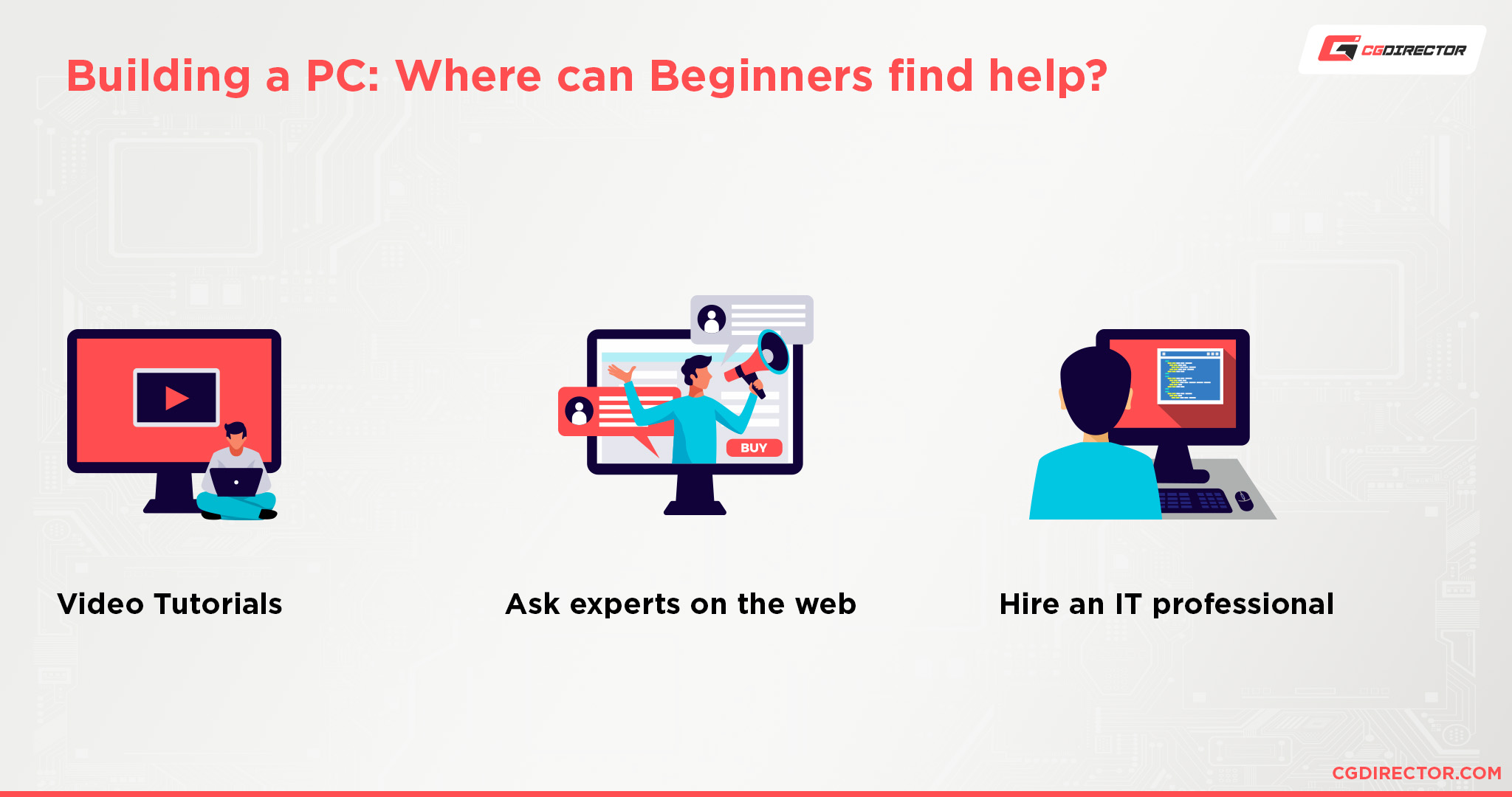
All the parts and wires might look intimidating at first, but it’s all quite intuitive.
If you have an hour to spend watching a video or two about how to build a PC, you will most likely be able to build a PC with no problems.
But if you go into it without any sort of preparation at all, you’re going to have a rough time.
Can I Build a Good PC for $1000?
This depends on what you’ll need it for.
There was a time when $1000 was all you needed to create a great gaming PC, but those times are long gone now.
You can still get a very good PC that can do pretty much anything you ask of it, but you’re not going to get the greatest performance and you’re not going to get as much bang for your buck as you did a couple of years back.
The baseline budget for a good all-around PC these days is around $1500.
How Long Does a PC Build Last?
That depends on a lot of factors.
Everything from what you use it for, how often you use it, how you use it, how often you clean it all changes how long a PC build might last.
If you’re doing resource-heavy work on your PC without adequate cooling or cleaning, your PC isn’t going to last that long.
But if you keep your PC cool and you make sure to clean it and not push it 100% all the time, it’ll last you a good long while. 5+ years.
And at that point, you will most likely upgrade to something more powerful anyway.
So the gist of it is that, if you take care of your PC, it’ll last as long as you want it to last.
Over to You
Have any other questions about saving money when building a PC? Feel free to ask us in the comments or our forum!
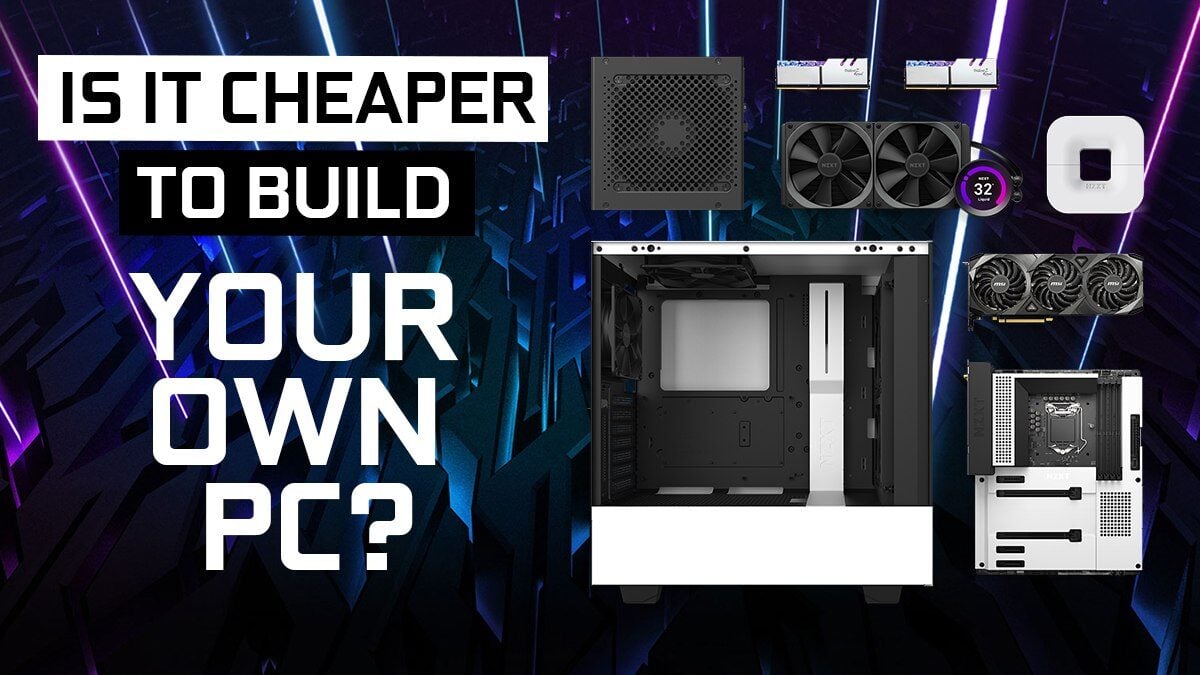
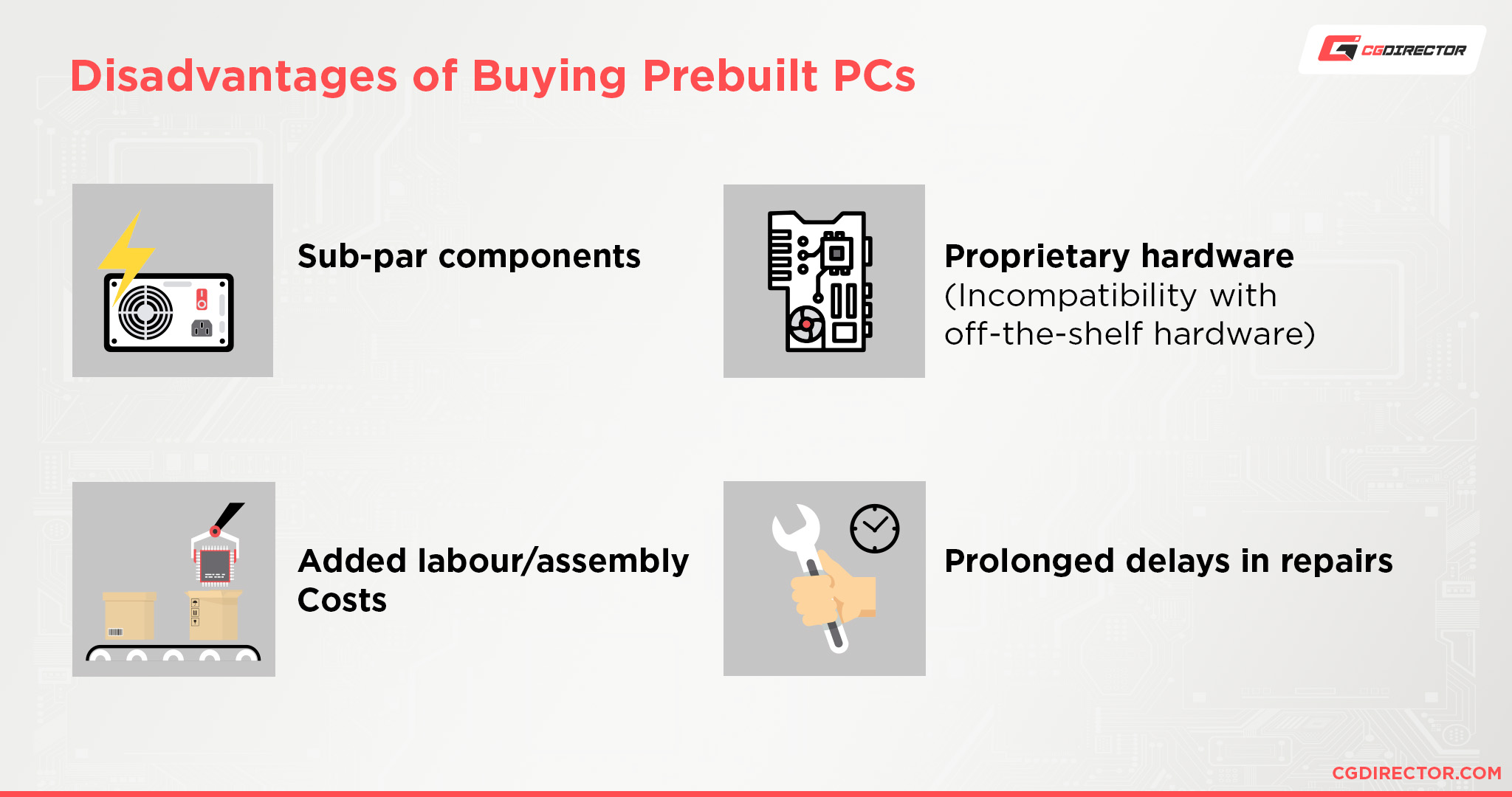
![Should You Build a PC? [7 Great Reasons] Should You Build a PC? [7 Great Reasons]](https://www.cgdirector.com/wp-content/uploads/media/2023/11/Should-You-Build-a-PC-7-Reasons-For-Building-a-PC-Twitter-594x335.jpg)
![Is GIGABYTE a Good Brand? [2024 Update] Is GIGABYTE a Good Brand? [2024 Update]](https://www.cgdirector.com/wp-content/uploads/media/2023/07/Is-GIGABYTE-a-Good-Brand-Twitter-594x335.jpg)
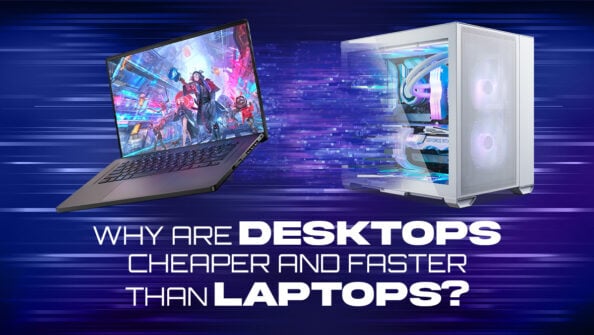
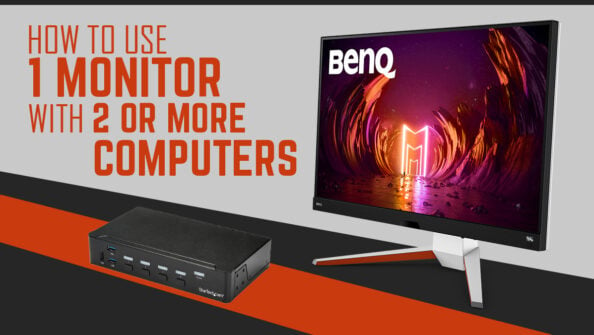

1 comment
28 October, 2022
hey, I found this helpful, thanks